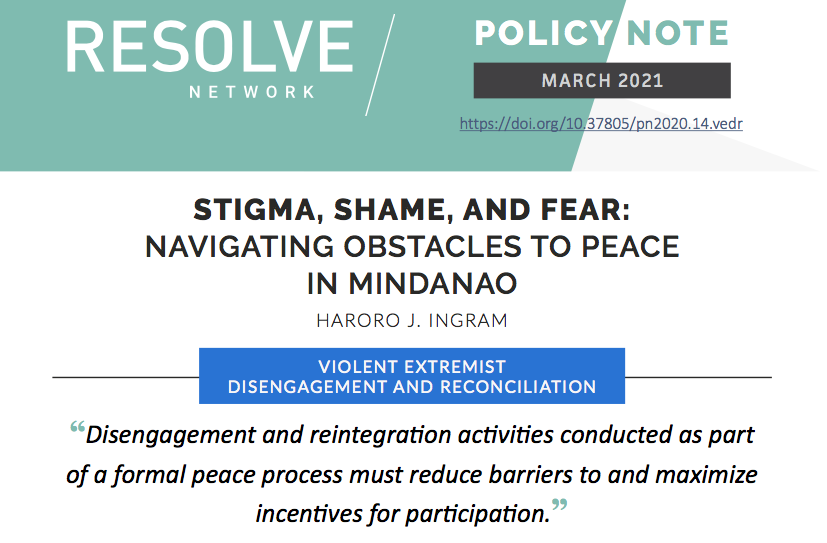Stigma, Shame, and Fear: Navigating Obstacles to Peace in Mindanao

Abstract
After decades of cyclical peace agreement failures and war in Mindanao, the establishment of the Bangsamoro Autonomous Region of Muslim Mindanao (BARMM) in early 2019 brought the best hope for sustainable peace and stability in living memory. But the problems within the BARMM and Mindanao more broadly are immense. A trifecta of stigma, shame, and fear is regularly identified as levers exploited by peace spoilers to not only recruit and mobilize from local communities but obstruct disengagement and reintegration efforts. The widespread and intergenerational experiences of trauma across Mindanao hang like an invisible pall over almost every aspect of life. The dynamics of stigma, shame, and fear in Mindanao tend to be multidimensional in that they may emerge from a range of sources and multidirectional in their effect, as different sources of stigma, shame, and fear can push and pull individuals and groups in different ways. Stigma, shame, and fear may act as obstacles but also opportunities that need to be understood and appropriately harnessed in disengagement and reintegration initiatives. This policy note offers a framework of recommendations that are largely grounded in peacebuilding approaches.
Suggested citation:
Ingram, Haroro J. Stigma, Shame, and Fear: Navigating Obstacles to Peace in Mindanao. Washington, D.C.: RESOLVE Network, 2021. https://doi.org/10.37805/pn2020.14.vedr.